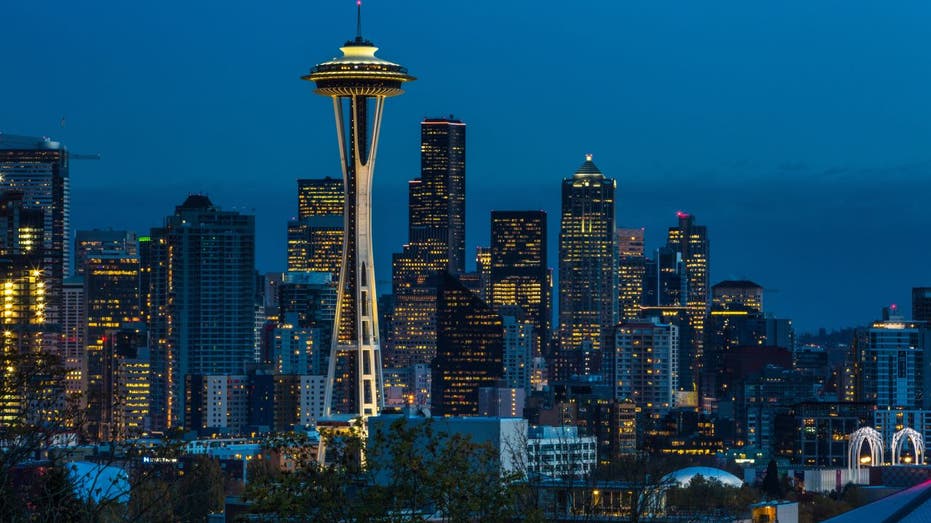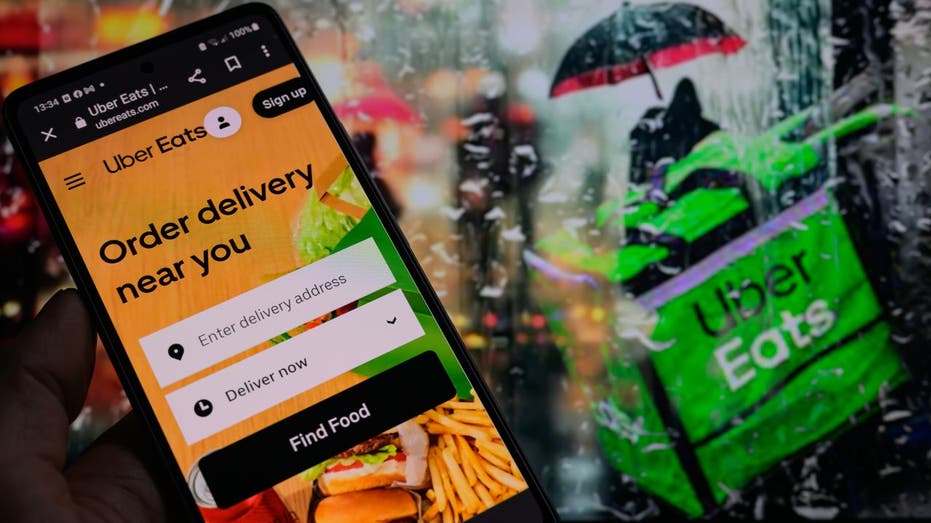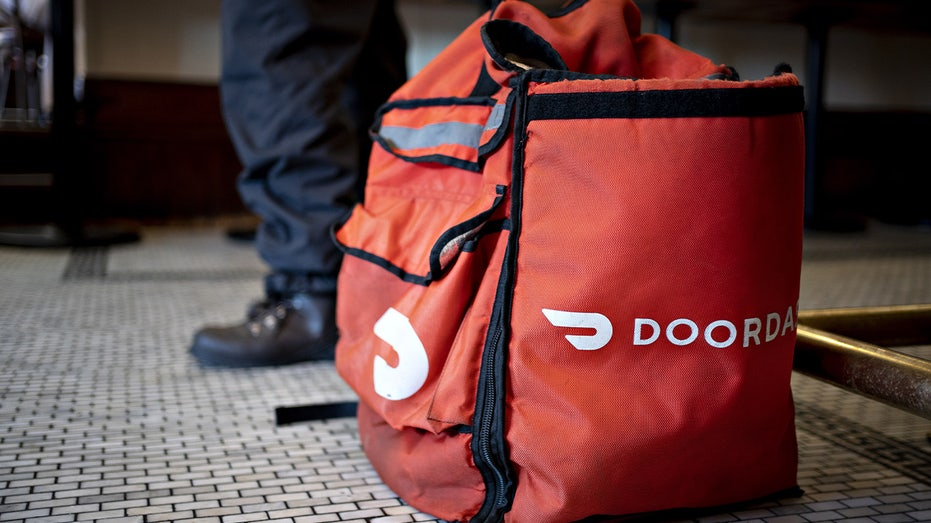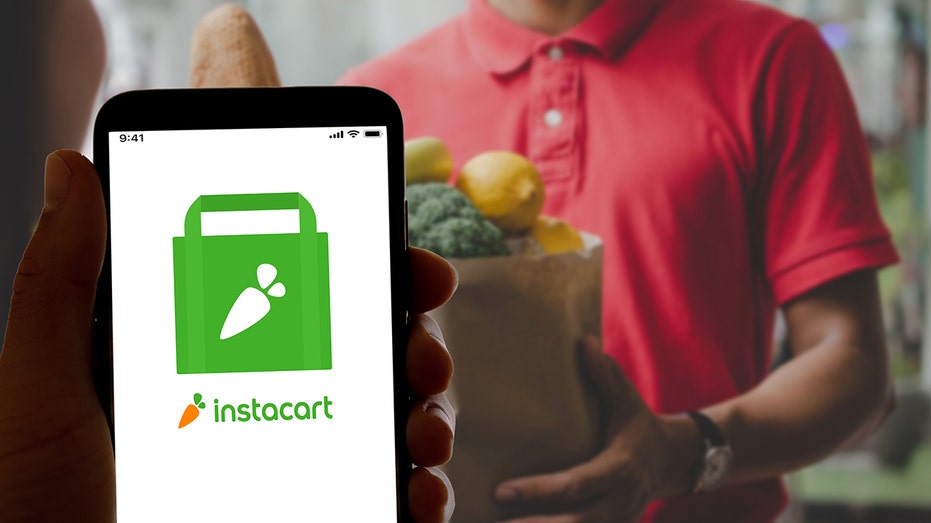Seattle's minimum pay ordinance hurting delivery drivers it meant to help
Seattle's app-based worker minimum payment law has taken a toll on delivery orders, gig workers and delivery app companies warn
Andy Wiederhorn on California minimum wage hike: ‘Someone’s got to pay’
Fat Brands chairman and founder Andy Wiederhorn details the economic impact of California raising the minimum wage to $20 an hour.
The Seattle City Council’s recently implemented minimum payment ordinance for app-based workers like those who work handling deliveries through apps such as DoorDash, Uber Eats and Instacart is hurting the workers it intended to help.
In 2022, the Seattle City Council enacted a first-of-its-kind ordinance that aimed to help ensure that app-based delivery drivers earn a minimum wage plus tips and compensation for expenses. That law took effect last month and effectively requires companies to pay the greater of a minimum per-minute amount of $0.44 and a minimum per-mile amount of $0.74, or a minimum per-offer amount of $5.
In practice, this has prompted companies like DoorDash and Instacart to pay their independent contractor delivery drivers $26 or more per hour to comply with the regulation and cover their costs. That amount is well above the city of Seattle’s regular minimum wage of $19.97 per hour and has forced those companies to pass some of those costs on to consumers placing orders.
Gary Lardizabal, who lives in Seattle and has made deliveries through Uber since 2016, told FOX Business that the delivery business has fallen off dramatically since the first week of the ordinance’s implementation as consumers balk at higher prices for orders.
DOORDASH, UBER EATS HIKE FEES IN BLUE STATE CITY OVER DELIVERY APP MINIMUM PAY LAW

The Seattle City Council's new minimum payment law for app-based "gig workers" took effect last month, with delivery workers and the app companies reporting a decline in orders. (George Rose/Getty Images / Getty Images)
"My experience in downtown Seattle, which is booming with Amazon and other tech workers, wait times are half the day," Lardizabal said in an interview. "There’s reduced orders for drivers and couriers… and there’s definitely reduced business for restaurants."
"All of them you can see there’s just less bags on the delivery trays, the racks. Chipotle used to just have bags upon bags — that’s gone down," Lardizabal said. He said one restaurant told him they had averaged 170 orders per day through gig companies before the ordinance, and that last Thursday at 6 p.m. they only had 16 orders placed that day.
He added that between Seattle’s high cost of living and expensive gas prices, the dwindling income from making scarce deliveries isn’t enough to live off of, which may force some drivers and couriers out of the business entirely.

Uber Eats said it's seen a steady decline in demand for deliveries in the wake of the ordinance taking effect. (Jonathan Raa/NurPhoto via Getty Images / Getty Images)
Tammie Hetrick, president and CEO of the Washington Food Industry Association, told FOX Business that independent grocery stores have also noticed a decline in delivery orders — many of which are placed by elderly residents or working families.
"I have stores reporting about a 10% reduction in deliveries," Hetrick said. "I mean, we’re struggling, you know, we have a 1% to 2% profit margin and just the cost of goods have gone up so much just to get them to the store. So we’re challenged with that and then trying to get those goods to the people and those families that need it."
LOS ANGELES DESSERT SHOP ANNOUNCES SUDDEN CLOSURE OF LOCATIONS, CITES COST OF BUSINESS IN CALIFORNIA

DoorDash has started paying its Dashers in Seattle $26.40 an hour to cover the costs associated with the new ordinance. (Andrew Harrer/Bloomberg via Getty Images / Getty Images)
Delivery apps for gig workers said that they warned the Seattle City Council — which has had nearly its entire composition turnover since the ordinance was first enacted — about the law’s impact and noted the financial impact it’s had on delivery workers, consumers, restaurants and grocers.
| Ticker | Security | Last | Change | Change % |
|---|---|---|---|---|
| UBER | UBER TECHNOLOGIES INC. | 74.77 | -0.44 | -0.59% |
| DASH | DOORDASH INC. | 182.47 | -1.39 | -0.76% |
| CART | MAPLEBEAR INC | 34.64 | +0.29 | +0.84% |
Uber told FOX Business in a statement, "The new law has only been in effect for 4 weeks and we are tracking a steady decline in demand from customers, resulting in couriers spending on average 30% more time waiting for delivery work than before the ordinance went into effect."
"Under this new law, Dashers who deliver in Seattle now earn at least $26.40 per hour, before tips, plus additional pay for mileage while on delivery — far exceeding Seattle's minimum wage," DoorDash told FOX Business. "We warned the previous City Council that we would likely need to implement a new fee to help offset some of the costs of this unprecedented policy. Our hope is that the newly elected Council will come to the table in search of a solution that works better for Dashers, merchants and consumers in Seattle."
"We warned the previous City Council that this new legislation would have unintended consequences for Seattle shoppers, customers, and retailers," Instacart told FOX Business. "Now that the law is in place, the cost to customers has increased, and shoppers are seeing fewer available batches on average. While we continue to work to deliver the best customer and shopper experience in Seattle, we hope that the new City Council takes seriously the voices of shoppers, customers and retailers and makes common-sense changes to this law."

Instacart said it hopes the new Seattle City Council will consider changing the app worker minimum payment ordinance. (Davide Bonaldo/SOPA Images/LightRocket via Getty Images / Getty Images)
GET FOX BUSINESS ON THE GO BY CLICKING HERE
The Seattle City Council did not immediately respond to a request for comment.
A spokesperson for Seattle’s labor standards department told KIRO 7 that "it is far too early to make an assessment" about the ordinance’s impact. They added that it’s been in effect less than a month and the "city will be monitoring these and other metrics going forward. The law does not require companies to increase prices for customers."
"I mean, I don’t know how much more data they need — maybe they need to see us homeless in the streets. This is not a livable wage," Lardizabal said in response to the council’s reluctance to repeal the law. "It’s hurting us, it’s hurting the consumer, it’s going to close restaurants. Please repeal it."




















